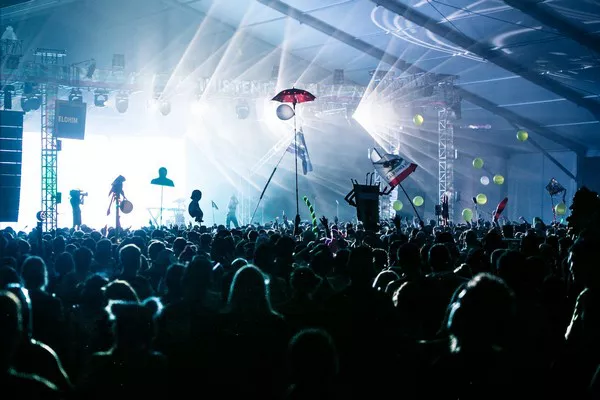Music is a universal language that transcends boundaries, connecting people across cultures and generations. Its presence in our lives is undeniable, with the power to evoke emotions, inspire creativity, and foster a sense of community. In exploring the multifaceted role of music, it becomes evident that its impact extends far beyond mere entertainment. From influencing our moods to shaping cultural identities, music plays a pivotal role in the human experience.
Music and Emotional Resonance: A Symphony of Feelings
At the core of the question “What is the role of music in our lives?” lies the profound ability of music to resonate with our emotions. Whether it’s the melancholy strains of a violin or the upbeat rhythm of a lively drum, music has the power to elicit a spectrum of feelings. This emotional resonance is a testament to the universal nature of music, as it speaks to the human experience in ways words often cannot.
Scientifically, music has been proven to affect our emotions by influencing the release of neurotransmitters such as dopamine and serotonin in the brain. Slow, melodic tunes can induce a sense of calm, while energetic beats can elevate mood and motivation. As a therapeutic tool, music is used to address various emotional and mental health challenges, illustrating its role as not just an art form but a powerful means of emotional expression and healing.
Cultural Significance: The Melody of Identity
The role of music in shaping cultural identities is profound and enduring. Different cultures have distinctive musical traditions, each reflecting the unique history, values, and customs of its people. From the rhythmic beats of African drums to the intricate melodies of classical Indian ragas, music serves as a cultural artifact, preserving and transmitting traditions from one generation to the next.
Music is a key element in ceremonies, rituals, and celebrations across diverse cultures. It acts as a unifying force, bringing communities together to commemorate shared experiences or express collective emotions. In this way, the role of music in our lives extends beyond the personal and becomes a thread that weaves through the fabric of societies, connecting individuals to their cultural roots and fostering a sense of belonging.
Educational Harmony: Music’s Impact on Learning and Development
Beyond its emotional and cultural dimensions, music also plays a crucial role in education and cognitive development. Numerous studies have highlighted the positive effects of music education on academic performance, cognitive abilities, and social skills. The integration of music into educational curricula enhances learning experiences and nurtures holistic development in students.
The act of learning and performing music involves various cognitive processes, such as memory, attention, and problem-solving, which contribute to overall brain development. Moreover, the collaborative nature of making music fosters teamwork, communication, and discipline – skills that extend far beyond the musical realm. From early childhood through adulthood, the role of music in our lives as an educational tool is evident in its ability to enhance creativity, critical thinking, and emotional intelligence.
The Therapeutic Cadence: Music as Healing
In addition to its educational benefits, music has a long-standing history as a therapeutic tool. Music therapy harnesses the power of sound to address physical, emotional, and psychological challenges. Whether used in clinical settings or as a personal coping mechanism, the therapeutic role of music in our lives is a testament to its ability to heal and soothe.
Music therapy is applied in diverse healthcare settings, from hospitals and rehabilitation centers to mental health facilities. It has been shown to reduce stress and anxiety, alleviate pain, and improve the overall well-being of individuals facing various health issues. The rhythmic patterns and harmonic structures of music can stimulate brain activity, providing a non-invasive and enjoyable avenue for rehabilitation and emotional expression.
Social Harmony: Music as a Catalyst for Connection
The communal experience of music, whether at concerts, festivals, or social gatherings, underscores its role as a catalyst for human connection. Shared musical experiences create bonds among individuals, transcending differences and fostering a sense of unity. From the tribal drum circles of ancient civilizations to the modern-day global music festivals, the role of music in our lives as a social glue has remained constant.
Music’s ability to bring people together is evident in its role in social movements and activism. Throughout history, protest songs have fueled movements for social justice and change, serving as anthems that unite people in their quest for a better world. The shared emotional experience of singing or dancing to a powerful melody amplifies the impact of collective action, highlighting music’s role as a force for social harmony and transformation.
Expressive Individualism: Music as a Personal Narrative
While music has a profound impact on communities and societies, its role in our lives is also deeply personal. Individuals often turn to music as a means of self-expression, using lyrics, melodies, and rhythms to articulate emotions and experiences that may be challenging to convey otherwise. In this sense, music becomes a personal narrative, a soundtrack to the unique journey of each individual.
The advent of technology has further personalized the role of music in our lives. With the rise of streaming platforms and personalized playlists, individuals curate their musical experiences, creating soundtracks that accompany them through different moods, activities, and phases of life. The accessibility of music allows people to explore diverse genres and discover artists from around the world, expanding the scope of their personal musical narratives.
Innovation and Creativity: Music’s Influence Beyond the Notes
The influence of music extends beyond its immediate auditory impact, reaching into the realms of innovation and creativity. Music has been a driving force in inspiring artists, writers, and creators across various disciplines. From the abstract compositions of avant-garde musicians influencing visual artists to the rhythmic patterns of world music shaping dance forms, the role of music in sparking creativity is far-reaching.
In the corporate world, music is strategically used in marketing and branding to evoke specific emotions and create memorable associations with products or services. The use of jingles, theme songs, and carefully selected soundtracks in advertisements illustrates how music can enhance brand recognition and consumer engagement. In this way, the role of music in our lives extends to the realms of commerce and innovation, showcasing its influence in shaping the cultural and creative landscape.
Conclusion: The Symphony of Life
In conclusion, the role of music in our lives is a rich and multifaceted tapestry that intertwines with our emotions, cultural identities, education, therapy, social connections, personal narratives, and creativity. From the cradle to the grave, music accompanies us on our journey, leaving an indelible mark on the human experience. As we continue to explore and appreciate the diverse ways in which music enriches our lives, we come to realize that it is not just an art form but a dynamic force that resonates with the very essence of what it means to be human. So, the next time you find yourself lost in the melodies or moved by the rhythm, remember that you are participating in a timeless symphony that connects us all.


























